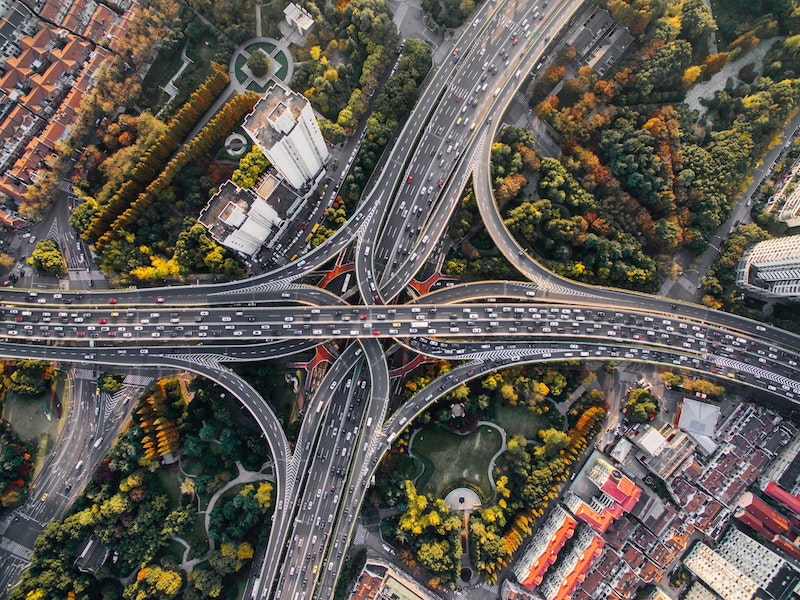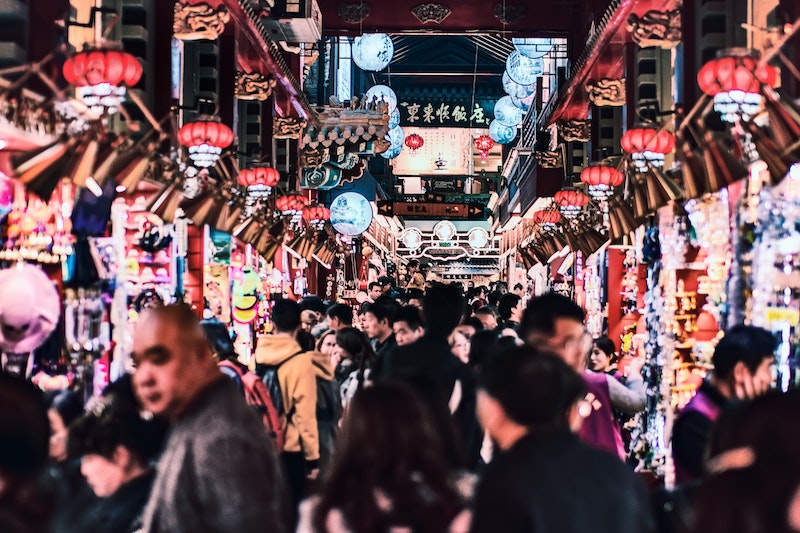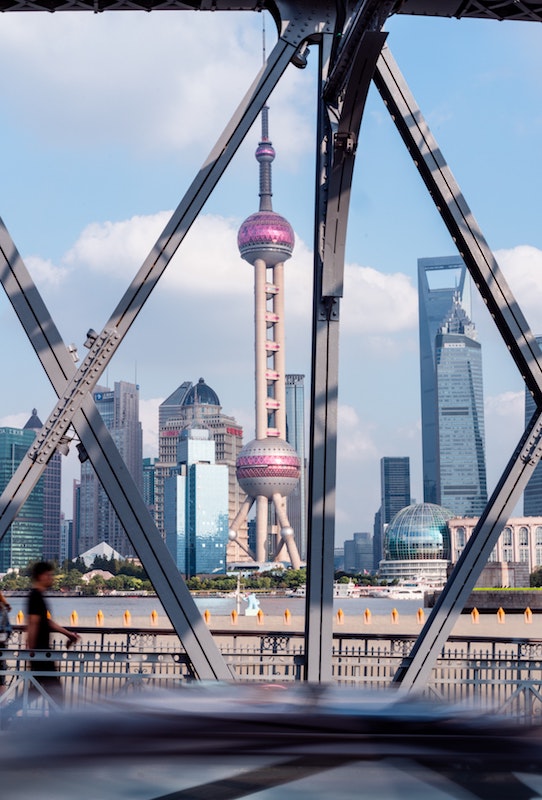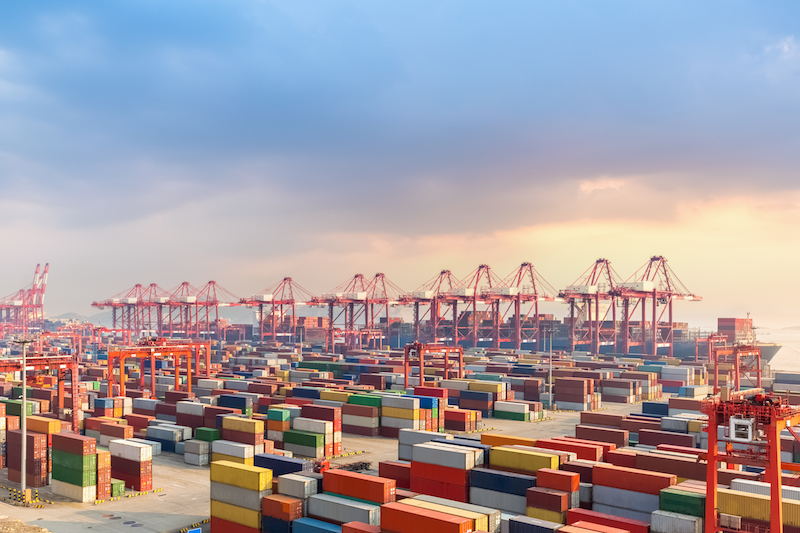Pulse on China
Internal or Double Circulations? The Chinese Debate about Openness and Reform
by Yucong Li, Masters candidate, UC San Diego School of Global Policy and Strategy
“Pulse on China” is a series of articles comparing Mainland China’s media coverage of key events with those outside of China. Analysis is conducted by graduate students with native Chinese language skills and focus on Chinese affairs.
Editor’s Note: In this column, we ask our students to survey Chinese media reports on an important topic whose content may not be immediately, or ever, available in English. In this age of global circulation of news and analysis, our readers can gain knowledge of important developments in any other country, almost instantly, in English. Nevertheless, English coverage leaves blind spots, depriving us of important insights into the informational universe citizens of other countries, the Chinese in our case, inhabit. As we are aware, this informational universe is deeply shaped by censorship, as all official media is controlled by the Chinese state. In this column, we assemble Chinese-language reporting that is not yet available in English with minimal editorializing on our part. We bring these reports to you in a matter-of-fact manner so you can form your own critical understandings of the information provided. For your convenience, we provide direct links to the Chinese articles.
 Two camps seem to be forming in China on the question about how to confront a dismal external economic environment, caused by the pandemic and the American-led backlash that threatens globalization. The first proposes “internal circulation” in its economic policy, emphasizing domestic consumption and self-reliance; the other advocates greater opening and reform as a way to counter external threats.
Two camps seem to be forming in China on the question about how to confront a dismal external economic environment, caused by the pandemic and the American-led backlash that threatens globalization. The first proposes “internal circulation” in its economic policy, emphasizing domestic consumption and self-reliance; the other advocates greater opening and reform as a way to counter external threats.
First, according to Xinhua report, Xi Jinping remarked in a conference with tech entrepreneurs in July 2020: “Under the current external environment of rising protectionism, downturn in the world economy, and shrinking global market, we must focus on getting our own house in order.” He said it is necessary for China to "give full play to the advantages of the super-sized domestic market, and to gradually form a new development pattern in which the great internal circulation will form the principal part, while the double circulation of domestic and international circulations will promote each other.”
 Some Chinese officials see Xi’s call for beefing up “internal circulation” as a sign of using self-reliance to respond to the external challenges. Huang Qifan, vice chairman of the Finance and Economics Committee of the National People's Congress Standing Committee, recommends throwing away illusion of America and preparing to fight economically. Although Xi Jinping stated that focusing on internal circulation is not the same as closing the door to international economy, many Chinese economists take the cue to elaborate on the advantages of a large domestic market and increasing domestic demand.
Some Chinese officials see Xi’s call for beefing up “internal circulation” as a sign of using self-reliance to respond to the external challenges. Huang Qifan, vice chairman of the Finance and Economics Committee of the National People's Congress Standing Committee, recommends throwing away illusion of America and preparing to fight economically. Although Xi Jinping stated that focusing on internal circulation is not the same as closing the door to international economy, many Chinese economists take the cue to elaborate on the advantages of a large domestic market and increasing domestic demand.
Huang also believes that emphasizing the internal economic cycle can break the inertia of decades of externally-oriented economy promoted by the leading cadres and entrepreneurs at all levels. While not dismissing the importance of internal-external interaction, Huang argues that emphasizing internal economic cycle will lead the government to freshly examine the significance of innovation, investment and consumption to the national economy. He seems to suggest that internal circulation is not proposed as a short-term fix of the problems caused by the pandemic or decoupling. Rather its time has come as China has become a strong economic power. Look around at all the developed countries, he writes, “any strong economy must have an internally circulated economy that is 80% of its GDP, while externally-oriented economy takes up 20% or less.”
 Cao Heping, a professor of economics at Peking University, echoes Huang’s argument. He too believes that emphasis on internal circulation, complemented but not eclipsed by international economic interaction, is able to help China to withstand the double impact of trade protectionism and the pandemic. He maintains that such a strategy is also a corrective to the overt export orientation of the national economy.
Cao Heping, a professor of economics at Peking University, echoes Huang’s argument. He too believes that emphasis on internal circulation, complemented but not eclipsed by international economic interaction, is able to help China to withstand the double impact of trade protectionism and the pandemic. He maintains that such a strategy is also a corrective to the overt export orientation of the national economy.
At the same time, there are some voices supporting further reforms to expand openness of the economy. Call to increase domestic demand is not a recent proposition. Expanding domestic demand mainly depends on improving the economic lot of China's vast rural population. However, due to the stalling of reforms and persistent rural-urban divide, China’s countryside, according to some reports, is “returning to poverty,” or at least it is not helping to boost domestic demand. Given the situation, how China can further expand domestic demand remains a question.
Professor Xiao Gongqin of Shanghai Normal University offers another cautionary tale. He believes that China should play down the ideological conflict with the West and burnish its image as a large, tolerant and enlightened power. Xiao, a once-advocate of neo-authoritarianism for the sake of carrying out reform, contends that China must be careful not to fall into a "hedgehog-like self-withdrawal reaction" when it is confronted by heavy outside pressure.
Somewhat contrary to expectation, the Global Times carried an editorial on July 27 arguing that national security concerns must not be allowed to dominate all areas of economic and social life, and international interaction. The editorial stated that China must strengthen itself through continuous reform and opening up, the very foundation of China’s national security and prosperity. It is only through such policies that China can resist Washington’s radical policies.
Entrepreneur and founder of Ctrip.com, Liang Jianzhang who is also a professor of economics at Peking University, takes the argument for opening and continuing reform further. He argues that the best way for China to counter external hostility is not through tit-for-tat retaliation. Rather, China should further open up and strengthen foreign cooperation in all areas to reach new economic heights and to improve China’s international image. For example, if the United States wants to block WeChat and Tiktok, China can do the opposite, by opening access to Google and other international Internet sites. This way, China will see both its hard economic power and soft power rise.
 The debate, although somewhat muted, is continuing between the two positions in the somewhat arcane languages of internal and double circulations. Fu Yifu from the Suning Financial Research Institute took Japan’s experience at the end of the 20th century as an example. He explained that Japan’s economic transition – its turn toward “internal circulation” - in the face of the US pressure has brought many benefits, such as increased disposable income for the residents, narrowing income gap, continuous industrial progress, and enhanced innovation. But he admitted that turning to internal circulation could be a difficult road. Historically, Japan’s turn has exacerbated the bubble in the Japanese economy and worsened the government's debt level.
The debate, although somewhat muted, is continuing between the two positions in the somewhat arcane languages of internal and double circulations. Fu Yifu from the Suning Financial Research Institute took Japan’s experience at the end of the 20th century as an example. He explained that Japan’s economic transition – its turn toward “internal circulation” - in the face of the US pressure has brought many benefits, such as increased disposable income for the residents, narrowing income gap, continuous industrial progress, and enhanced innovation. But he admitted that turning to internal circulation could be a difficult road. Historically, Japan’s turn has exacerbated the bubble in the Japanese economy and worsened the government's debt level.
So, when confronted with unprecedented economic challenges, how will China choose?
